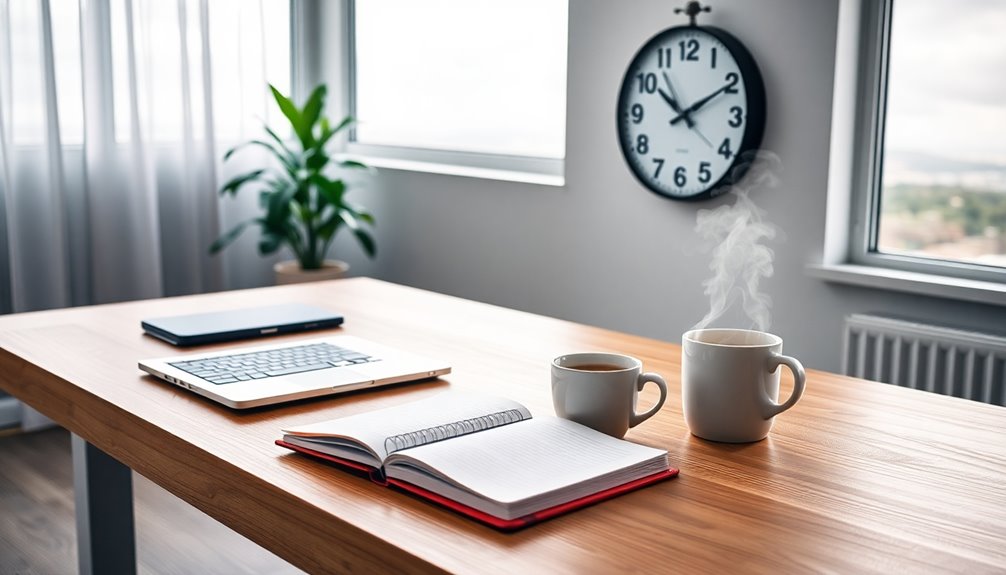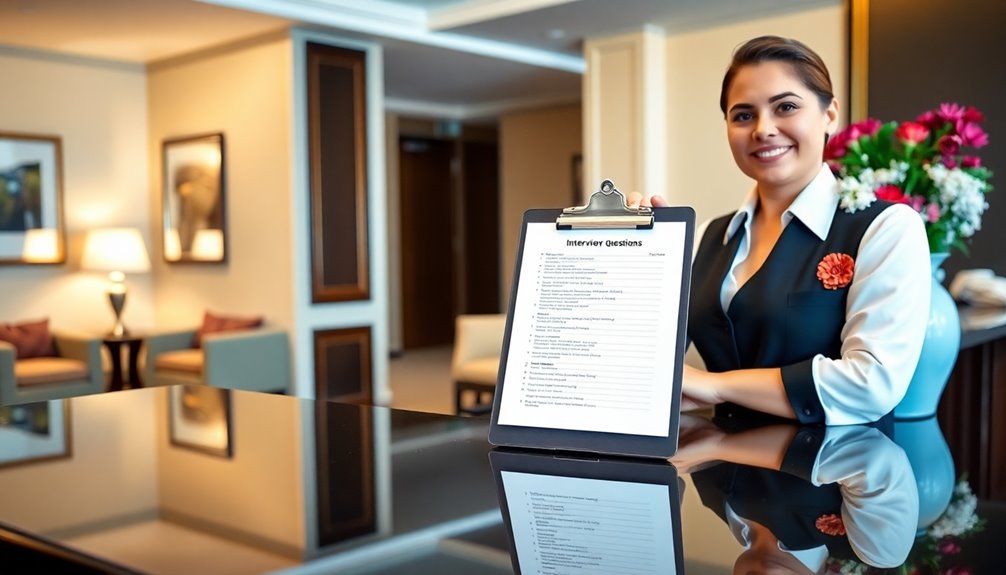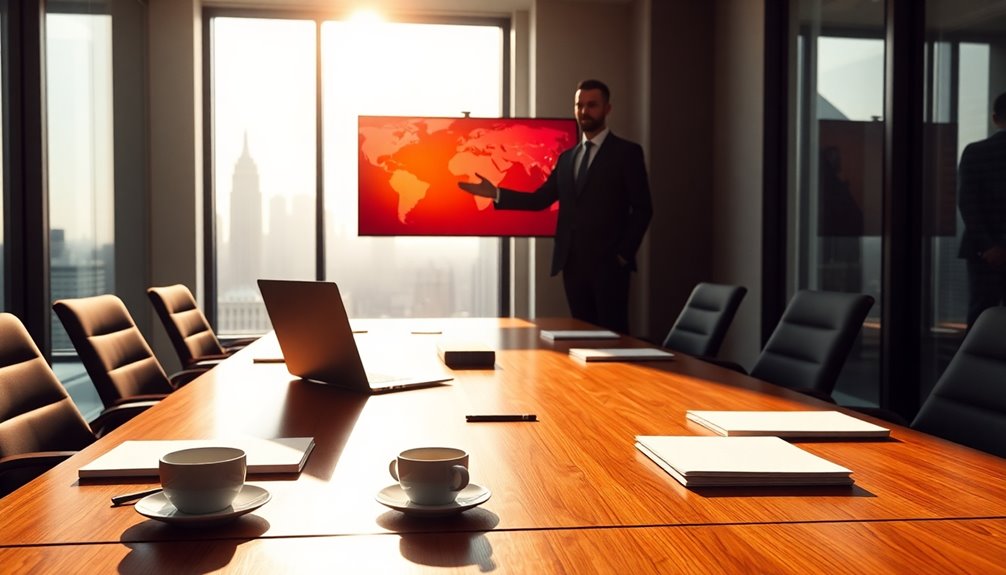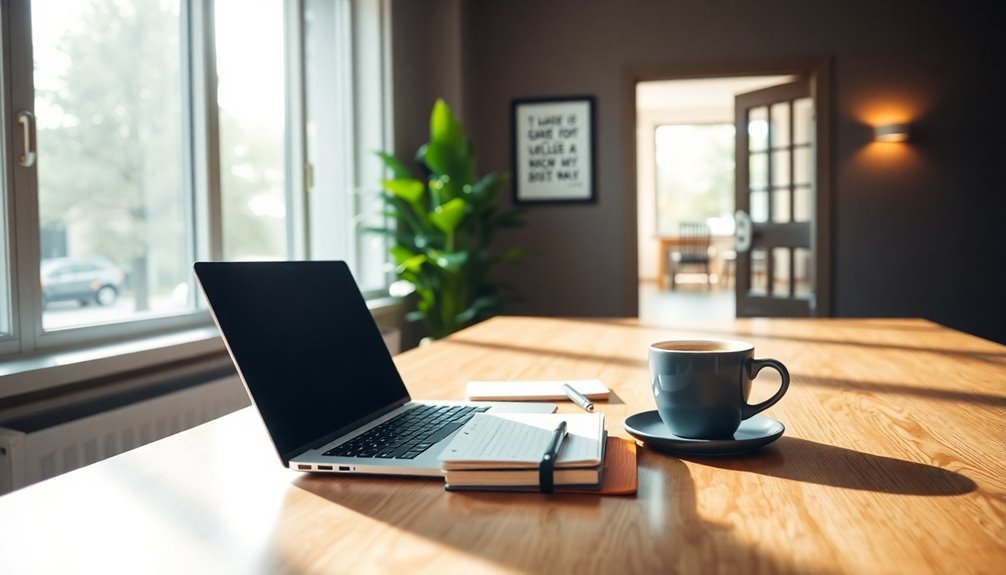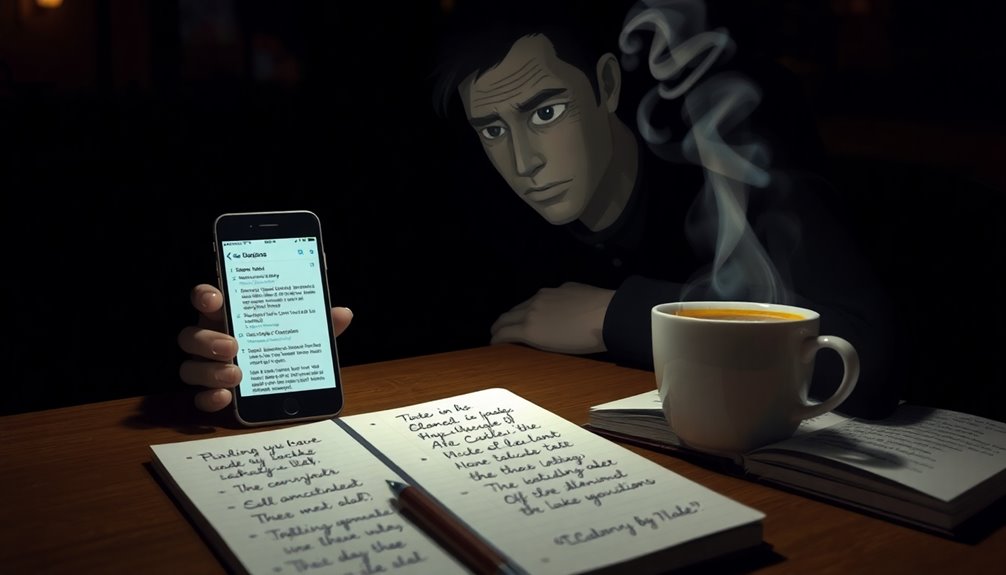After your interview, you can usually expect a response within one to two weeks. However, this timeframe can vary based on the industry. For example, hospitality sectors may take longer, while tech companies often respond quickly. Delays can happen due to internal decision-making processes or high candidate volumes. If you haven't heard back after 5-7 business days, it's appropriate to send a polite follow-up. Staying proactive and engaged during this waiting period will benefit you. There's much more to know about maneuvering through this anxious time that could help you feel more prepared.
Key Takeaways
- Average response time post-interview typically ranges from 1 to 2 weeks in most industries.
- The electronics/manufacturing sectors usually respond within 16 days after interviews.
- The hospitality industry may take up to 39.5 days for feedback post-interview.
- Government roles often have the longest response times, averaging 53.8 days.
- Internal processes and candidate volume can delay feedback, extending the expected response time.
Understanding the Hiring Timeline
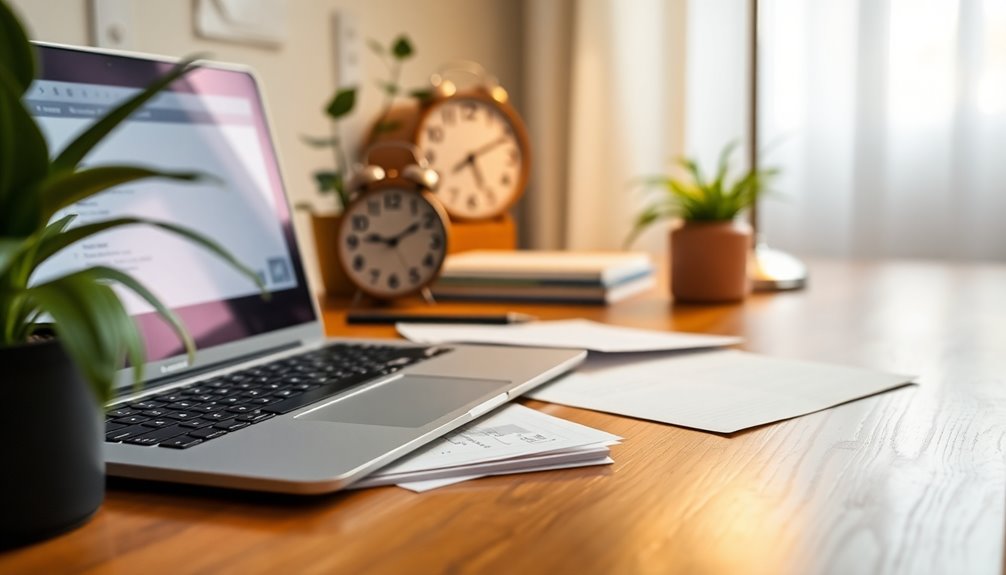
When you finish an interview, you might wonder how long it'll take to hear back. The average response time after an interview is typically between 1 to 2 weeks, but this can vary greatly depending on the industry and role. For instance, if you're interviewing in electronics or manufacturing, you could get a response in under 16 days. However, in sectors like hospitality, you might be waiting to hear back for up to 39.5 days.
In general, the entire hiring process can average around 23.5 days from interview to job offer. You should also consider that government sector roles often take the longest, averaging 53.8 days. This waiting period can be frustrating, especially if you're keen to move forward in your job search.
Keep in mind that several factors influence this timeline, such as the volume of candidates and the internal decision-making processes of the hiring manager. While you're waiting to hear back, staying proactive can help keep your momentum going, whether you're applying for more roles or preparing for future interviews.
Factors Affecting Response Time
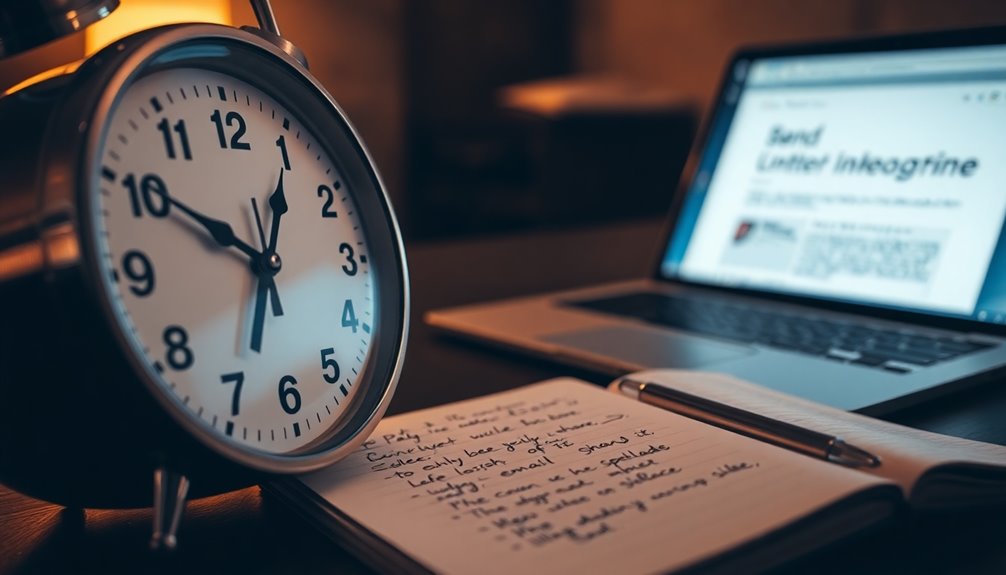
When you're waiting to hear back after an interview, several factors can influence how long it takes. Internal decision-making processes and the volume of candidates the company is considering can slow down feedback. Additionally, shifts in company priorities and urgency can greatly affect the timeline for a response.
Internal Decision-Making Processes
After an interview, you might find yourself waiting longer than expected for a response, and that can often be attributed to internal decision-making processes within the hiring team. These processes can involve multiple stakeholders, leading to delays as they consult each other before reaching a consensus on candidates.
Here's a breakdown of some factors that impact response time:
| Factor | Description | Impact on Response Time |
|---|---|---|
| Feedback Compilation | Gathering and discussing interview feedback can take time, especially in larger organizations. | Moderate to High |
| Availability of Decision-Makers | Key decision-makers may not be readily available for discussions or approvals. | High |
| Company Priorities | Changes in company focus or restructuring can shift attention away from hiring. | Variable |
The complexity of the hiring process, including the number of interviews required, also contributes to the timeline. You may find that the hiring decision can be prolonged due to these factors, making it essential to remain patient while waiting for updates.
Candidate Volume Impact
Internal decision-making processes can be further complicated by the volume of candidates vying for the same position. When hiring teams receive a high number of applications, response times can greatly extend. Evaluating numerous candidates requires careful consideration, leading to longer wait periods for feedback. You might find yourself waiting longer than expected, especially if the company is dealing with a large pool of applicants.
In these scenarios, hiring teams often struggle to provide individualized attention, which can result in delays. Scheduling interviews with multiple candidates adds another layer of complexity, as decision-makers must coordinate times and thoroughly evaluate each candidate's qualifications and fit. As more applicants enter the mix, the deliberation process becomes more prolonged, with hiring managers weighing various factors before making a final decision.
During peak hiring seasons or for particularly sought-after positions, the effects of candidate volume become even more pronounced. If you're in an application process during such times, prepare for potentially extended response times. Being aware of these dynamics can help manage your expectations and reduce anxiety as you await feedback.
Company Priorities and Urgency
Company priorities can greatly impact how quickly you hear back after an interview. If a company shifts its focus or is juggling urgent projects, it might delay hiring decisions and extend response times. You might find yourself waiting longer than expected, especially if the HR department is swamped with a high volume of applicants.
The internal decision-making processes can also affect your timeline. When approvals are needed from multiple stakeholders, it can slow down candidate evaluations considerably. Additionally, seasonal fluctuations, like holiday periods, often see reduced staffing, leading to slower responses as internal tasks take precedence.
Changes in funding or organizational structure can further affect hiring urgency. If a company is traversing financial challenges or restructuring, it may pause hiring plans altogether, leaving you in limbo.
Understanding these factors can help you manage your expectations. While it's natural to want immediate feedback, remember that numerous elements within a company can influence how quickly you receive a response. Keep this in mind as you await news about your interview outcome.
Average Timeframes After Interviews
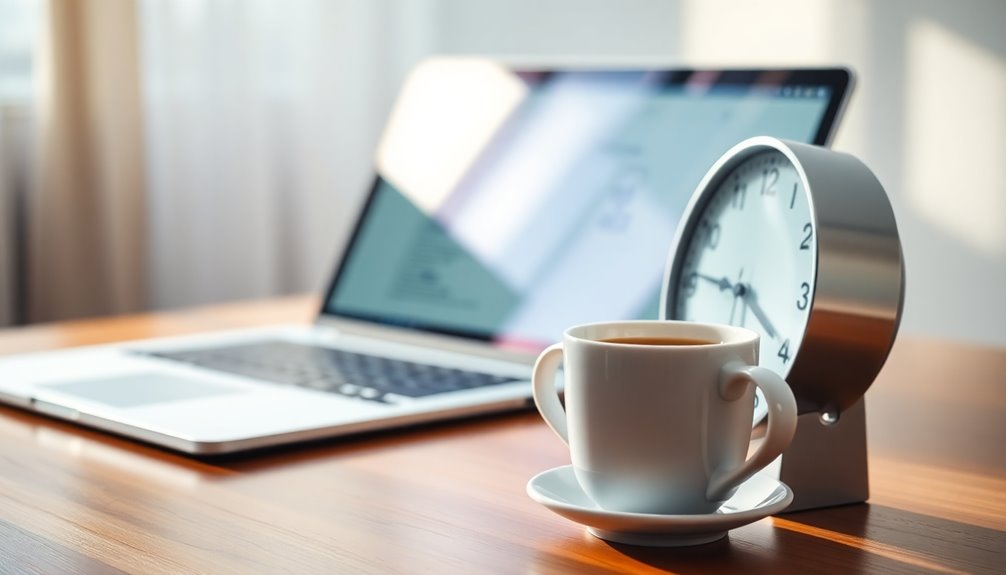
Timing is essential when it comes to the hiring process, and knowing what to expect can ease your anxiety after an interview. The average time you'll wait for a response is typically 1-2 weeks, although this can vary based on the industry and company. According to a Jobvite report, 44% of candidates hear back within a few weeks, while 37% get feedback within just one week.
On average, the time from your job interview to a job offer is about 23.5 days. However, this can differ considerably by job title and industry. For instance, sectors like electronics and manufacturing may respond in under 16 days, while hospitality can take up to 39.5 days for feedback.
What to Expect Based on Industry

When you're steering through the post-interview period, it helps to know what to expect based on the industry in which you've applied. Different sectors have unique average response times, so here's what you can anticipate as a job seeker:
| Industry | Average Response Time | Hiring Time Influence |
|---|---|---|
| Tech | 1-2 weeks | Fast-paced, quicker feedback |
| Electronics | Under 16 days | Streamlined processes |
| Hospitality | Up to 39.5 days | High turnover, slower pace |
| Government | 53.8 days | Lengthy procedures |
| Restaurant | 10.2 days | Rapid hiring decisions |
As you can see, tech firms typically provide faster feedback, while the government sector tends to have longer hiring processes. The electronics and manufacturing industries also respond relatively quickly. Hospitality can be frustratingly slow, averaging nearly 40 days. Remember, factors like company size and the complexity of the role can heavily influence the response time in each industry. Keep these insights in mind, and you'll be better prepared for the wait!
Effective Follow-Up Strategies
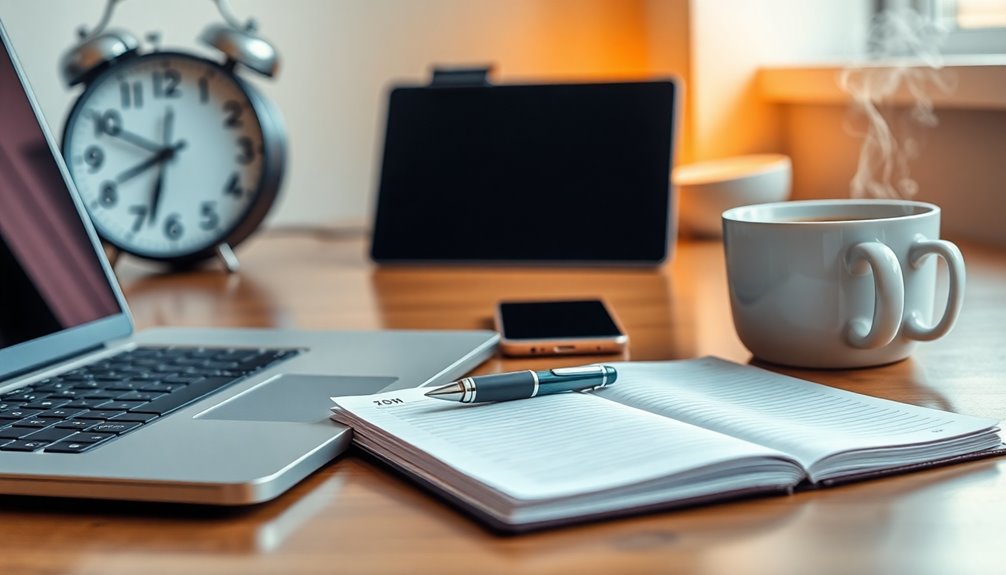
After your interview, timing for your follow-up is key, so aim to send a thank-you note within 24 hours. If you haven't heard back in 5-7 business days, it's a good idea to reach out again to check on the hiring timeline. In your message, make sure to reference specific topics from your conversation to show your engagement and enthusiasm for the role.
Timing for Follow-Up
A thoughtful follow-up can make a significant difference in your job search. Timing is essential, so here's a simple guide to help you navigate the follow-up process effectively.
| Action | Timing |
|---|---|
| Thank-you note | Within 24 hours |
| First follow-up email | After 5 business days |
| Check-in for updates | If no timeline given, after 1 week |
| Anticipated response | Typically 1-2 weeks, some may take up to 4 weeks |
When you send your thank-you note, express your continued interest in the position and mention specific topics you discussed with the hiring manager. This personal touch shows your engagement and leaves a positive impression. After waiting the recommended five business days, consider sending a follow-up email if you haven't heard back.
Keep in mind the interview timeline may vary, and companies often take time for decision-making processes. By being patient and strategic with your timing, you'll position yourself favorably in the eyes of potential employers. Remember, a well-timed follow-up can reinforce your enthusiasm and professionalism.
Follow-Up Communication Methods
Effective follow-up communication can greatly impact your chances of landing the job. Start by sending a thank-you note within 24 hours of your interview. This quick gesture not only shows your gratitude but also reinforces your interest in the position. In your note, mention specific topics you discussed to personalize your message and leave a lasting impression.
If the hiring timeline wasn't addressed during your interview, wait at least five business days before sending a follow-up email. In this email, politely inquire about the status of your application and the next steps in the hiring process. Remember to keep your message concise and focused.
Email is typically the preferred method for follow-ups, so stick to it unless told otherwise. Use your follow-up email to reiterate your appreciation for the interview opportunity and maintain a professional tone throughout.
Additionally, consider asking about the hiring process timeline during the interview itself, which sets the stage for your follow-up. By implementing these strategies, you'll not only enhance your candidacy but also demonstrate your professionalism and enthusiasm for the role.
Crafting Effective Messages
Crafting a compelling follow-up message is key to maintaining a positive impression after your interview. Start by sending a thank-you email within 24 hours to express gratitude for the opportunity and reinforce your interest in the position. This prompt action shows professionalism and enthusiasm.
If you don't hear back, plan to send follow-up communications about 5-7 business days later, especially if no hiring process timeline was discussed. In your follow-up, reference specific topics from your interview. This personalizing communication demonstrates engagement and helps you stand out.
Be cautious of common mistakes that can undermine your efforts. Avoid being overly aggressive; a gentle reminder is sufficient. Steer clear of generic templates that lack personalization, and make sure to proofread for any spelling or grammar errors. A polished message reflects well on you.
Signs of a Positive Outcome
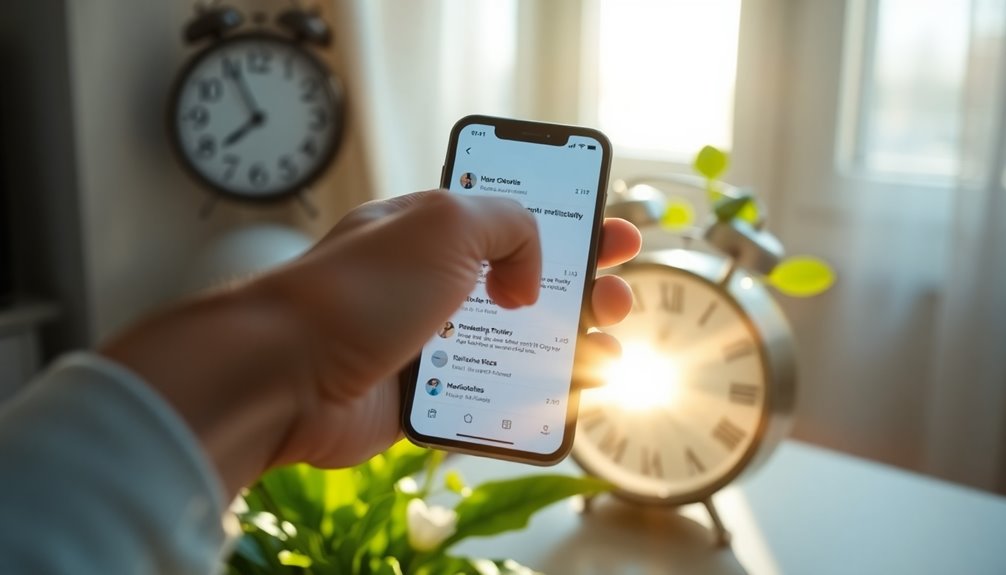
Numerous signs can indicate a positive outcome after your interview. If the interviewers display enthusiasm and engage in discussions about next steps or timelines, it usually shows they have a strong interest in you. This excitement can be a great indicator that they envision you fitting into their team dynamics.
Additionally, if the interviewer talks positively about the company culture, it suggests they see you as a good match for their work environment. An invitation to meet with additional team members or stakeholders is another strong sign you're being seriously considered for the role. It means they're not just interested in your skills but also in how you might contribute to the team.
Follow-up communication from the company before the expected decision timeline can be a powerful indicator of a positive outcome as well. If you find that your interview lasted longer than expected, this likely reflects the interviewer's engagement and genuine interest in your potential contributions. All these clues can help you gauge how well your interview went and whether you might receive that coveted job offer soon.
Handling Delays and Rejections
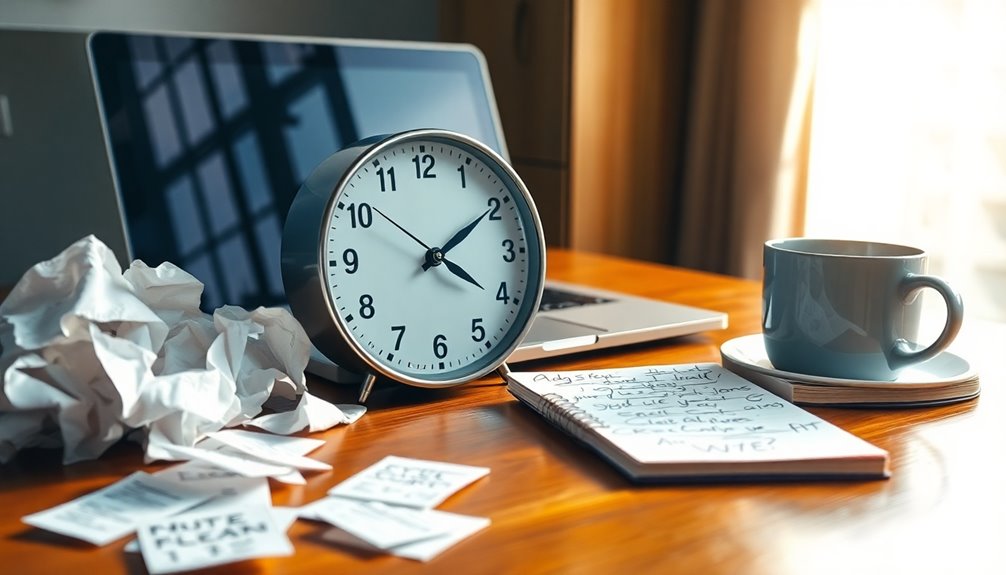
Even after recognizing positive signs during your interview, it's important to be prepared for potential delays and rejections. The average response time after an interview is typically 1-2 weeks, but this can vary widely depending on the industry. If you haven't heard back within that time frame for following, consider sending a polite follow-up inquiry. Delays often occur due to ongoing candidate interviews or the absence of key decision-makers, so don't lose hope.
It's vital to acknowledge that not all applications will yield a response. Many candidates experience auto-rejection emails shortly after submission, which can heighten anxiety. If you've interviewed for a job and receive a rejection, maintain professionalism in your communications. This leaves a positive impression and keeps future opportunities open.
While waiting, it might help to reflect on common interview questions you faced. This can boost your confidence for future endeavors. Remember, setbacks are part of the journey, and each experience builds resilience. Stay in touch with your network, as new opportunities can arise unexpectedly. Keep your head up; your next chance could be just around the corner.
Keeping Organized During the Wait
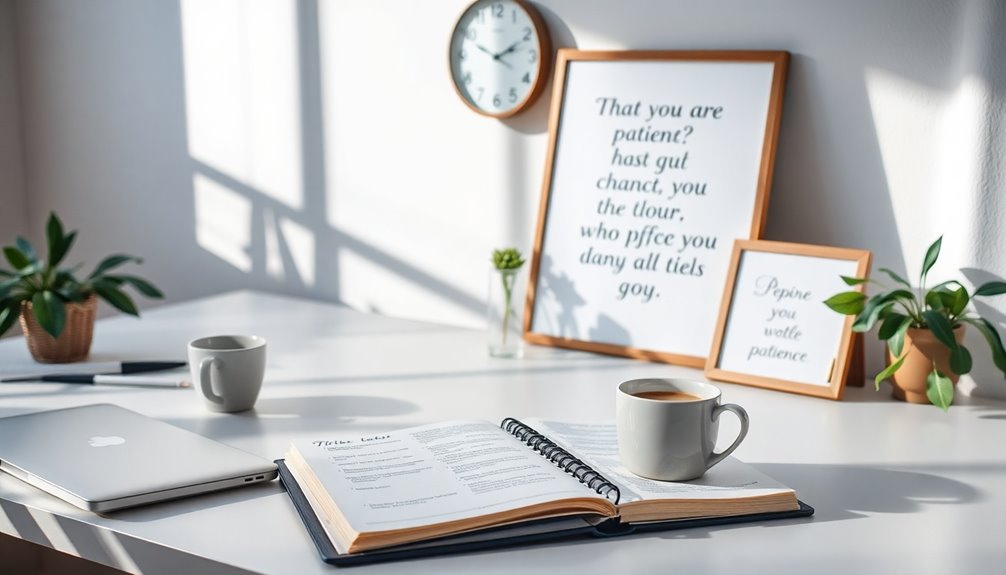
Staying organized during the wait can make the process feel less intimidating and more manageable. By utilizing job search tools, you can track applications, contacts, and interview timelines all in one platform. This helps you keep everything in order and easily accessible.
Set follow-up reminders for at least five business days after your interview. This gives hiring managers enough time to review candidates before you check in. Maintaining a detailed record of the companies you've applied to, interview dates, and any communications will allow you to quickly reference your application status during follow-ups.
Consider using tools like Teal's Contacts Tracker to manage your connections. This way, you can reinforce your interest in the job opening by following up with hiring managers or recruiters effectively. Regularly monitor your job search progress by updating your application status and reflecting on any feedback received during interviews.
Staying organized not only streamlines your job search but also helps you feel more confident as you wait for responses. With everything documented, you'll be ready to engage with potential employers whenever the time comes.
Best Practices for Communication
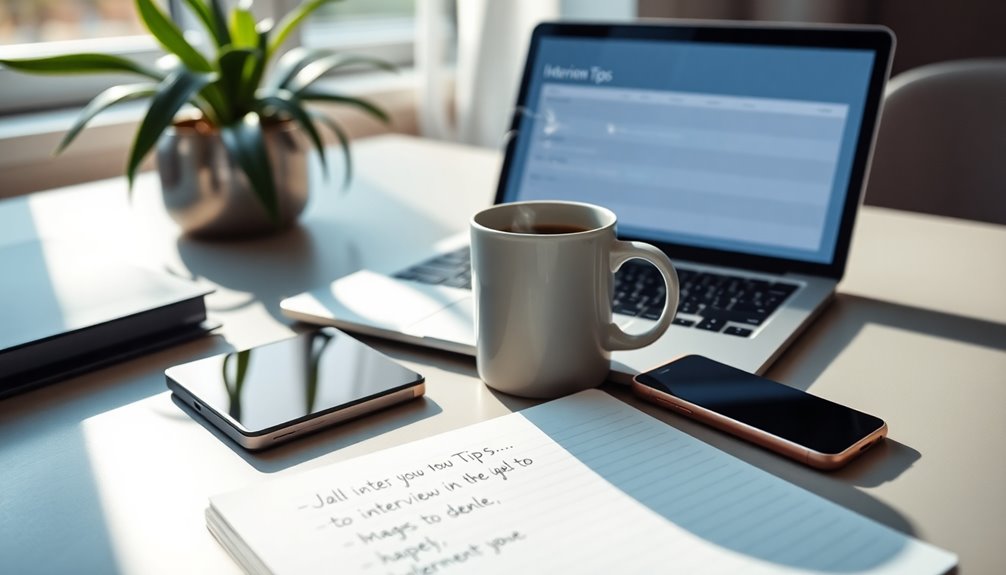
After your interview, it's essential to follow up within 24-48 hours with a thank-you note that expresses your gratitude and interest. If you didn't get a timeline for the hiring decision, wait at least five business days before checking in on the status. Keeping your messages concise and respectful will help you make a positive impression.
Follow-Up Timing Guidelines
Steering the follow-up process after an interview requires a balance of patience and proactive communication. To navigate this effectively, consider these timing guidelines:
- Send a Follow-Up Email: Aim to send your follow-up email within 24-48 hours of the interview. Thank the interviewer and express your continued interest in the position. This sets a positive tone for future communication.
- Observe the Wait Time: If no specific timeline for feedback is provided, it's wise to wait about one week before reaching out. This gives the hiring team enough time to review candidates and make decisions.
- Manage Your Job Search: During the wait time, keep applying and interviewing elsewhere. This guarantees you remain engaged in your job search and reduces anxiety about waiting for feedback.
Thank-You Note Importance
Although you might feel the interview went well, sending a thoughtful thank-you note can reinforce your candidacy and leave a lasting impression. Aim to send this note within 24 hours; doing so shows your professionalism and genuine interest in the position. In your thank-you note, mention specific topics discussed during the interview to personalize your message. This illustrates your engagement and can help you stand out from other candidates.
Expressing enthusiasm for the role not only creates a good impression but may also positively influence the hiring manager's perception of your application. Your thank-you note serves as a reminder of your qualifications and fit for the position, which could impact their final decision.
If you choose to send a follow-up email, keep it concise and reiterate your appreciation for the opportunity. You want to maintain a professional tone while highlighting your enthusiasm for the job. Remember, a well-crafted thank-you note can differentiate you from others and keep you top-of-mind as they evaluate candidates. Taking this extra step can make a significant difference in how your application is perceived.
Inquire About Next Steps
Understanding the next steps in the hiring process can ease your anxiety and help you strategize your follow-up communications. It's crucial to know how to inquire about next steps effectively. Here are some best practices:
- Ask About the Timeline: During your interview, inquire about the hiring process timeline. This sets clear expectations for when you should follow up.
- Timing Your Follow-Up: If you don't receive a timeline, wait at least five business days before sending a follow-up email. This approach helps you avoid coming off as overly enthusiastic.
- Crafting Your Follow-Up Email: In your email, express gratitude for the interview opportunity and reiterate your interest in the role. Keep it concise and professional to maintain a positive impression.
To enhance your chances of getting a response, use clear and relevant subject lines, like "Job Title Interview – Any updates?" This way, your email is more likely to be opened and read. By following these steps, you'll navigate the communication process smoothly, staying engaged without overwhelming your potential employer.
Moving Forward With Your Job Search
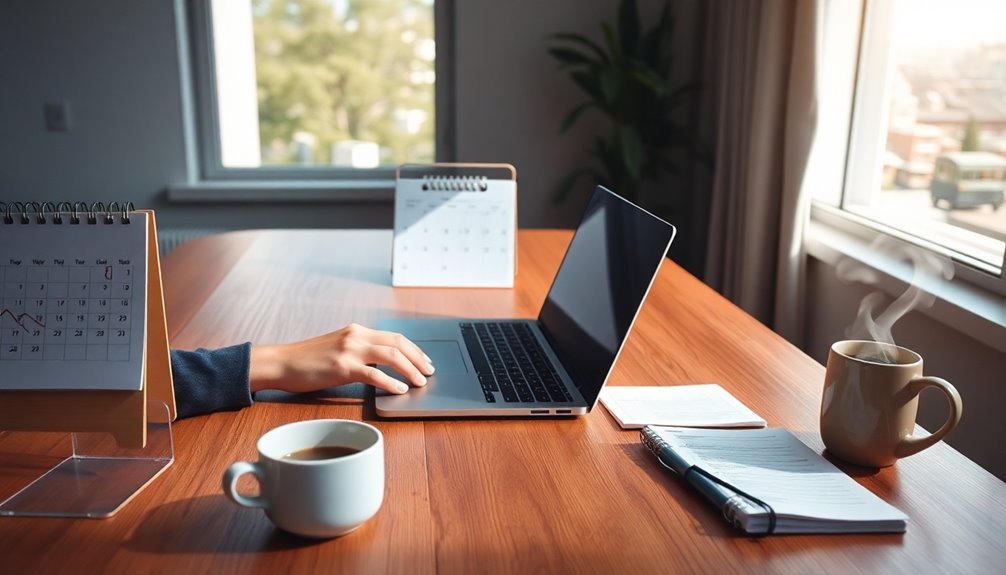
Patience is essential during the waiting period after an interview, but it shouldn't halt your job search momentum. While you might wait one to two weeks for feedback, or even longer, it's wise to continue applying for other positions. This guarantees you're not left stagnant while waiting for hiring decisions.
Engaging with your professional network can also be incredibly beneficial. Attend industry events, connect with peers, and explore online platforms to uncover new opportunities. Every application and networking effort could lead to a promising role, so don't underestimate their importance.
Be prepared for potential rejection; it's a common aspect of the job search. Regardless of the outcome, always maintain a professional demeanor in your communications. This approach not only helps you build a positive reputation but also keeps doors open for future opportunities.
Lastly, prioritize self-care and stress management techniques. Staying positive during this often lengthy process can make a significant difference in your overall well-being and motivation. Remember, the right job is out there, and each step you take brings you closer to it. Practicing techniques for maintaining high vibrational energy can also enhance your resilience during this time. Keep moving forward with your job search!
Frequently Asked Questions
How Long After a Job Interview Should You Hear Back?
After a job interview, you should typically expect to hear back within one to two weeks. However, this can vary based on the industry and the company's internal processes. If you haven't received any updates after five business days, it's a good idea to follow up politely. Remember, factors like company size and the number of candidates can affect response times, so be patient while you wait for feedback.
How Long Does It Take to Know if I Got a Job After an Interview?
After your interview, you can expect to wait about 1-2 weeks to know if you got the job. Some companies might take up to 4 weeks, especially if they have multiple candidates to evaluate. Keep in mind that factors like the hiring manager's availability and internal processes can affect this timeline. If you're anxious, it's perfectly fine to send a polite follow-up email after a week to check on your application status.
How Do I Know if the Interview Went Bad?
Did you know that about 40% of interviewees feel they didn't connect with their interviewer? If you're wondering if your interview went poorly, pay attention to certain signs. If the interviewer cuts the meeting short or seems disengaged, that's a red flag. Also, if they don't ask you questions or share details about the role, it might mean they're not interested. Trust your instincts; you usually know when things aren't going well.
How Long Does It Take for a Job to Get Back to You After an Interview on Reddit?
When you're waiting to hear back after an interview, it can feel like forever. On Reddit, users often mention that most companies get back to you within 1 to 2 weeks, but some might take longer due to internal processes. Tech firms usually respond faster, sometimes in just a few days. If you haven't heard anything after a couple of weeks, it's a good idea to follow up and show your continued interest.
Conclusion
So, you've aced the interview and now it's time to play the waiting game, right? It's like watching paint dry—exhilarating! Just remember, while you wait for that elusive email or call, your potential employer's probably busy conducting an extensive search for the next Picasso of PowerPoint presentations. Keep your chin up, though! In the meantime, why not perfect your skills in competitive staring contests? After all, patience is a virtue… and it's not like you're looking for a job or anything!
